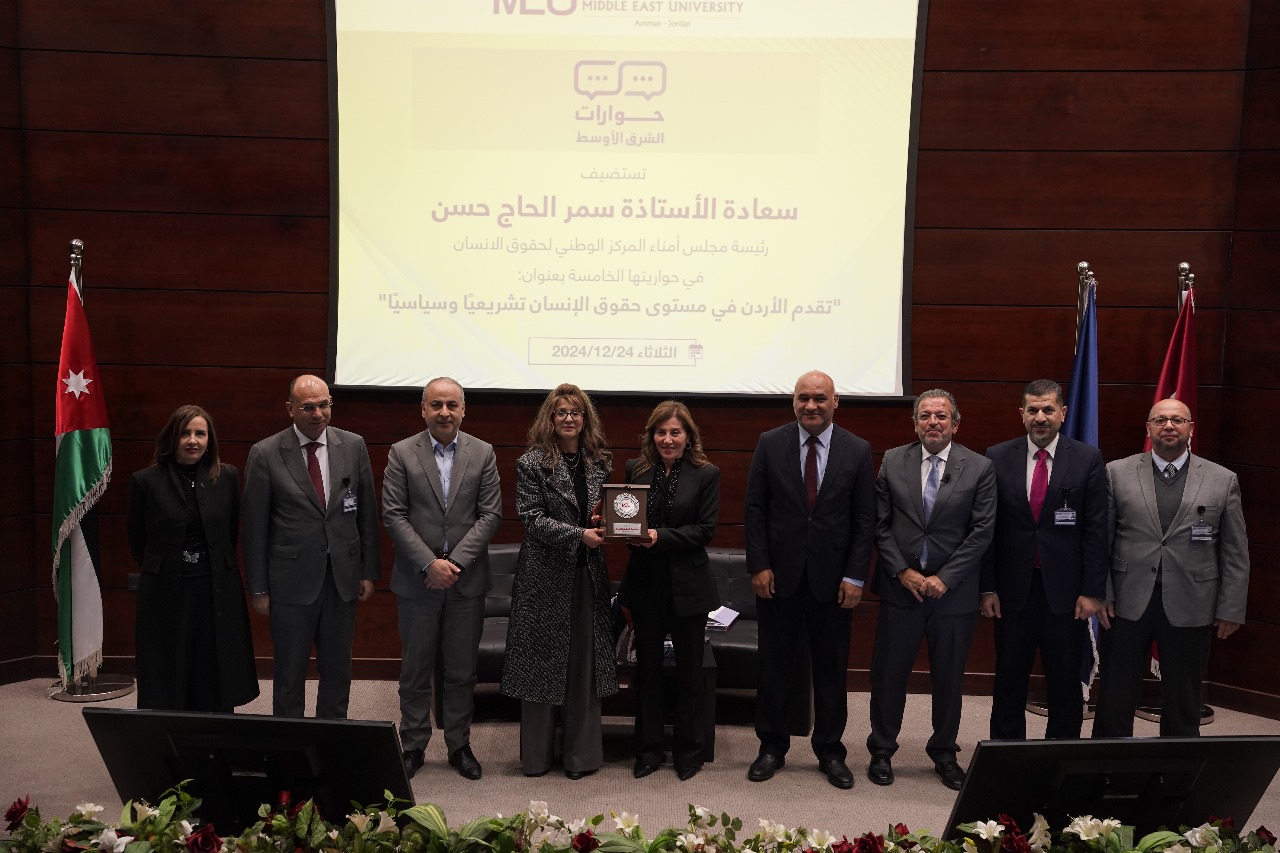
The Chairperson of the Board of Trustees of the National Centre for Human Rights (NCHR), Samar Hajj Hassan, emphasised that the centre operates in accordance with a comprehensive strategy that aims to enhance public awareness of the significance of rights and duties. She noted that legislative progress constitutes a pivotal means of achieving sustainable development and social justice.
This statement was made during the Middle East Dialogue, which was titled ‘Jordan’s Progress in Human Rights Legislatively and Politically.’. The event was held in the presence of university president Prof. Salam Al-Mahadin, Vice President Prof. Ahmad Al-Louzi, the Dean of Student Affairs, Dr. Hazem Al-Nsour, a number of faculty members, and students.
The dialogue was moderated by the faculty member of the Department of Media, Dr. Hani Al-Badri. Hajj Hassan expressed her great pleasure in meeting the students of Middle East University and praised the students’ awareness and fruitful interaction, which reflects an advanced vision and a real passion to contribute to the formulation of a brighter future.
She emphasised the necessity for recurrent such dialogues, underscoring the significance of collaboration between the National Center and various state and civil society institutions. She elaborated that the advancement of human rights necessitates unified national and international endeavors while concurrently endeavouring to establish trust and coordination among the involved entities to ensure the continuity and transformation of progress into a reality for all Jordanian citizens.
Al-Hajj Hassan praised the pioneering role played by the Hashemite leadership and the vision of His Majesty King Abdullah II, which is moving confidently towards strengthening Jordan’s position as a country rooted in the rule of law and institutions, noting that the progress made by Jordan on the legislative and political levels constitutes an essential pillar for building a more prosperous and sustainable future.
She called for collective national efforts to continue working to build a fair and inclusive society that upholds human rights and ensures equality and justice for all its members.
Al-Hajj Hassan then proceeded to review the efforts and roles of the National Centre, emphasising that the centre is committed to performing its tasks in all impartiality and transparency. She further stressed that the centre is dedicated to exercising its monitoring and advisory role without being influenced by any external party, thereby enhancing its capacity to protect and defend human rights in all circumstances.
The dialogue witnessed significant audience participation, with students posing numerous questions concerning the application of legislation in practice, the centre’s role in addressing human rights issues, and strategies to enhance youth involvement in political and human rights activities.
